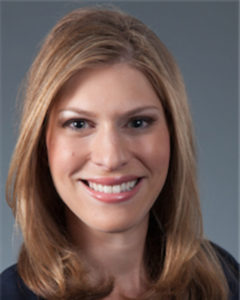Shelby Harris on CBT for Sleep Problems – Part 1 of 3
By Lynn Mollick 
On Sunday, March 24, ninety NJ-ACT members attended Dr. Shelby Harris’ workshop “CBT for All Sleep Problems.” Throughout her presentation, Dr. Harris emphasized that the goal of treatment is changing patients’ perception that their sleep is disordered. There are no absolute standards for “good sleep.” Every night will not be restful. Sleep is never consistently deep throughout the night — periods of wakefulness are normal. With age, sleep becomes lighter and more vulnerable to disruption.
Sleep efficiency is estimated hours of sleep divided by estimated hours in bed. Optimal sleep efficiency is 85%, but clock watching should always be avoided.
Assessment
Although many patients complain that they “have insomnia,” other problems can cause sleep difficulties that they experience insomnia. (These problems will be described in parts 2 and 3 of this report.) A careful differential diagnosis is necessary. Begin assessment by asking patients to complete a detailed sleep diary for 2 weeks. Many appropriate sleep diaries are available online. Obtain additional information with interview questions:
General factors: Describe the problem including onset, symptoms, course, exacerbating and ameliorating factors, and previous treatments.
Nighttime factors: Sleep schedule, number of hours spent in bed, pre-bed activities/routines, medication (for sleep or other conditions), evening fluid intake, exposure to light (especially from screens), situational factors that interfere with sleep (e.g. noise, temperature, lumpy mattress), and response to sleeplessness (activities and worries).
Daytime factors: Planned napping and spontaneously dozing off; drug intake, alcohol nicotine, steroids, psychiatric medications, bronchodilators; exercise. Does the patient do shift work? Pay particular attention to consequences of sleep loss, e.g. fatigue versus sleepiness, specific worries about sleep loss, attention and concentration deficits, affect and other emotional consequences.
Sleep hygiene includes the following:
- Wind down from activity an hour before bedtime. Turn off digital screens.
- Avoid alcohol, nicotine, and heavy meals within 3 hours of bedtime, and avoid caffeine, 8 hours before bedtime. These are all stimulating.
- Take a hot bath 1.5 to 2 hours before bed because it’s relaxing. Do not take a bath immediately before bed because it will make you too warm.
- Keep the bedroom quiet, dark, cool, and comfortable.
- Eat meals at regular times to help the body establish regular rhythms.
- A light snack of carbohydrates and protein an hour before bed avoids hunger before breakfast.
- Limit fluids to 8 ounces within 3 hours of retiring.
- Exercise regularly, but never within 3 hours of bedtime.
- Stimulus Control: Use the bed only for sleep and sex. Avoid tossing and turning. Get out of bed if you are fully awake. Getting up after a specified time period promotes clock- watching which is alerting. Plan calming activities and return to bed when you feel drowsy.
- Sleep Scheduling: Choose a time to get up and retire 7 days a week.
- Be careful about naps. They can reduce daytime sleepiness but they can also interfere with evening sleep. Twenty minutes is long enough; an hour will create grogginess.